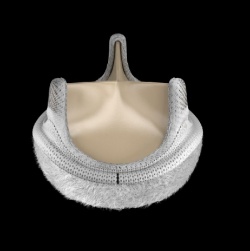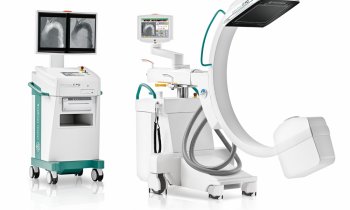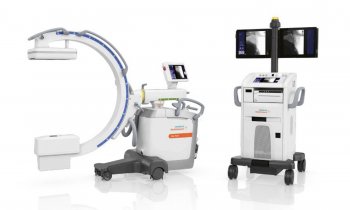Early clinical experience with Edwards intuity valve system
Edwards Lifesciences Corporation, a global leader in the science of heart valves and hemodynamic monitoring, announced that interim data from a multi-center European prospective study of the investigational EDWARDS INTUITY Valve System showed promising results for patients undergoing surgical aortic valve replacement (AVR).

The results generally reflect those found in traditional open-heart surgery, but demonstrate reduced cross-clamp and bypass times as compared to those of The Society of Thoracic Surgeons’ (STS) National Database, according to a presentation today during the Emerging Technologies and Techniques Forum at the American Association for Thoracic Surgery's 91st Annual Meeting in Philadelphia.
These data are from the TRITON clinical study, evaluating the feasibility, safety and performance of the EDWARDS INTUITY Valve System, which is based on Edwards’ market-leading pericardial tissue valve design. These data are intended to support the company’s CE Mark application for European commercial approval.
In this first clinical experience, surgeons at five centers achieved a technical success rate (the valve was implanted as intended) of 94 percent. A total of 90 patients with severe, symptomatic aortic stenosis or stenosis-insufficiency received the EDWARDS INTUITY Valve System in an isolated AVR or AVR with a concomitant procedure. For the isolated AVR procedures, mean aortic cross-clamp times were reduced by 43 percent, and mean bypass times by 41 percent, compared to the STS National Database. Comparable data for concomitant procedures are not available. Published studies indicate that a shorter duration of aortic cross-clamping is associated with a reduction in mortality and morbidity after AVR.
“We are encouraged by these interim results and the promise of this new technology. Implantation using the EDWARDS INTUITY Valve System may enable smaller incisions for isolated valve cases, which we believe could result in clinically significant benefits for patients,” said Prof. Axel Haverich, M.D., head of the Department of Cardiothoracic Transplantation and Vascular Surgery at Hannover Medical School in Germany and lead investigator of the study. “At three months’ follow-up, these patients demonstrated sustained clinical status improvement and the valve provided excellent hemodynamic performance.”
The EDWARDS INTUITY Valve System leverages the proven design of Edwards’ pericardial valve platform, which features aortic valves with nearly 30 years of clinical experience, and includes an innovative balloon-expandable frame. The valve system enables rapid valve deployment and is designed to reduce procedural complexity. It is an investigational device limited by law to investigational use only, and is not yet available commercially in any country.
12.05.2011










